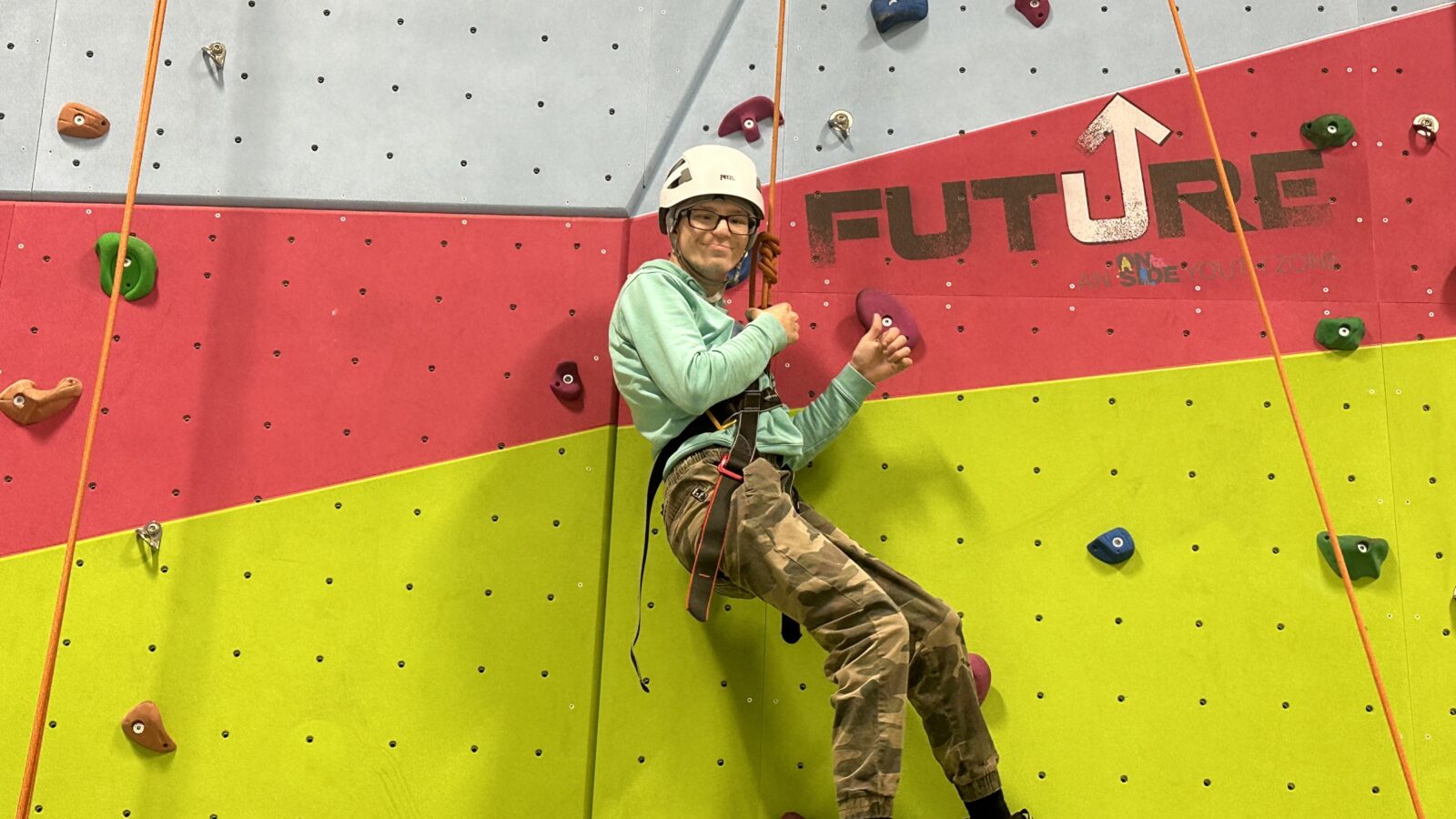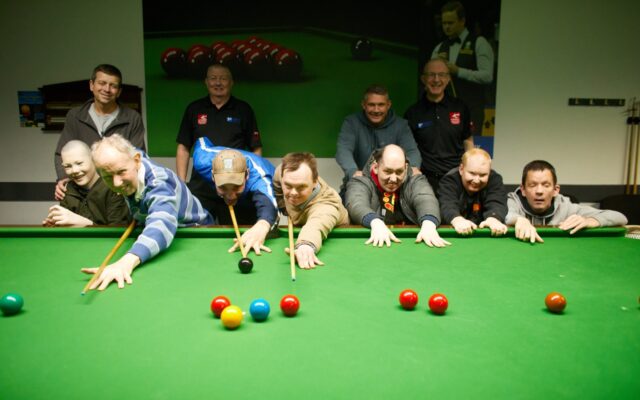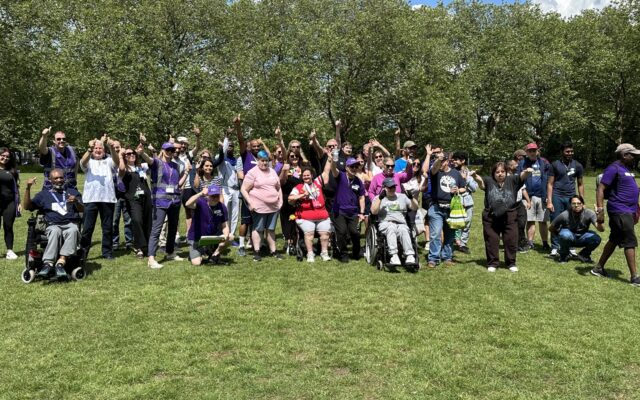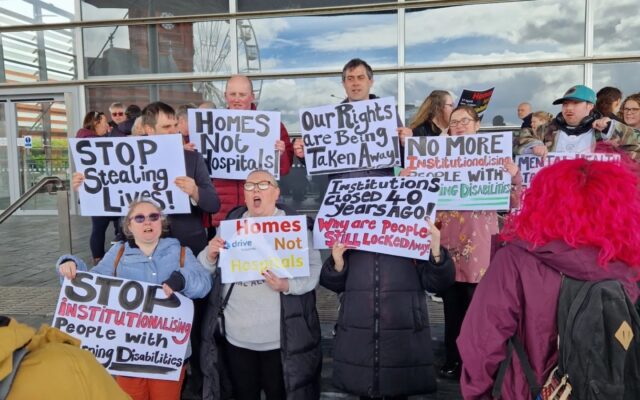Belting out Beyoncé’s Halo in front of a room full of friends takes confidence, just as conquering an eight-metre climbing wall takes skill and persistence.
I have watched Gabriel Ciubotaru achieve both of these. This incredible young man has a rare chromosome deletion that manifests in learning disabilities, cerebral palsy, feeding difficulties and balance issues.
As inclusion manager at Future Youth Zone in Dagenham, Essex – part of the OnSide national network of youth zones – I am lucky enough to work with 369 young people with additional needs, equivalent to 10% of our membership.
OnSide Youth Zones are state-of-the-art buildings located in disadvantaged areas and open to anyone aged 8-18 years or 25 years if they have an education health and care plan. The OnSide network sees 50,000 children and young adults come through its doors every year, nearly 4,000 of whom have additional needs.
We provide a well-equipped, supportive space that allows young people to find their passions and confidence, mentored by highly trained youth workers. We also host Futurebility day sessions for disabled members.
Every child deserves the chance to make friends and to thrive in social situations. That is no different for those with learning disabilities.
Pupils spend 85% of their waking hours outside school, so inclusion cannot end at the school gates.
We know from families that without the specialist services provided by Youth Zones and other charities, many young people would be stuck at home, lonely.
As for Ciubotaru, when he isn’t at college studying life skills, he is here. He says: “I feel safe and happy at Future. My first word when I walked in the first time was ‘Wow!’ It was huge and there were so many kids.
“Now I come every day to climb and use the music room and have lots of friends around me. If I feel sad, coming here cheers me up.”
I was struck by the 20-year-old’s cheeky smile when we first met in 2021. Here was a young man who doctors had given a 1% chance of surviving his disabilities but who had beaten the odds.
He liked to push boundaries and had behavioural challenges. So we made sure each session had the same rules and that he was rewarded for good behaviour, for example helping out on reception.
His mum, Marcela, says: “When Gabriel began to be more aware of his disability, his behaviour deteriorated. Future helped him understand his condition and to accept his disability. They gave me crisis management tips so that I could help calm him down at home. For example, music really helps.”
Our provision has to go beyond just being inclusive within the building. We link up with families, schools and organisations such as child and adolescent mental health services to support young people.
We want to equip teenagers to function well in society and surmount barriers to doing this.
Future recently piloted a six-week programme called the Nurture Group, which is designed to give young, disabled, learning disabled and neurodivergent people the confidence to attend mainstream senior sessions. Ciubotaru got stuck into everything.
He has thrived and is now on our Young Leader Programme, achieving first aid and safeguarding qualifications. When a younger child was hurt, Ciubotaru was adamant he wanted to stay and look after them.
The Gabriel I first met and the Gabriel I know now – the young man with cerebral palsy who took on the climbing wall and won – are very different. There is still room to grow, but I am so proud of what he has achieved.
Sereena Lewis is inclusion manager at Future Onside Youth Zone





